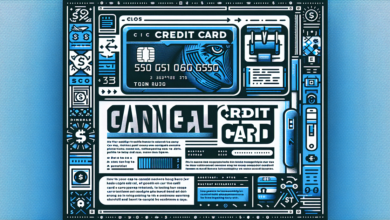Can Credit Card Company Take My Car
You might be wondering if a credit card company can take your car, especially if you're facing financial difficulties. While they can't directly repossess your vehicle for unsecured debt, there are circumstances involving secured loans that could change that. If you're not up to date on payments, the situation can become complicated. What happens if you ignore the problem? Understanding your rights and the potential consequences can make a significant difference in how you navigate this issue. Let's explore what you need to know to protect your assets effectively.
Understanding Credit Card Debt
Understanding credit card debt is essential, as it can quickly accumulate and lead to significant financial challenges if not managed properly. Credit card debt typically arises from high-interest rates, late fees, and overspending. When you carry a balance, interest compounds, making it harder to pay off over time. It's vital to monitor your spending habits and create a budget that prioritizes debt repayment. By making only minimum payments, you might find yourself trapped in a cycle of debt, which could affect your credit score and overall financial health. Aiming to pay more than the minimum can help reduce the principal balance faster. Ultimately, staying informed and disciplined with your credit card usage can protect you from potential financial pitfalls.
Legal Rights of Creditors
Creditors generally have specific legal rights when it comes to collecting debts, which can vary greatly depending on the jurisdiction and the type of debt involved. Understanding these rights is essential for you, as it helps you navigate potential risks. Creditors may:
- Sue you for unpaid debts
- Garnish your wages, subject to limits
- Place liens on your property
- Report negative information to credit bureaus
Being aware of these rights can empower you to take proactive measures in managing your finances. Always remember, maintaining clear communication and understanding your legal options can greatly alleviate potential distress related to debt collection. Protecting your assets should be a primary concern in any financial strategy.
When Can They Repossess?
Repossessing your car typically occurs when you've defaulted on a secured loan, meaning you haven't made the required payments as agreed in the contract. If you're behind on your payments, creditors can initiate repossession, often without prior notice. The specifics can vary by state, but generally, once you miss a payment, the lender has the legal right to reclaim the vehicle. It's essential to understand that repossession can happen quickly, sometimes after just one missed payment. To avoid this situation, maintain open communication with your lender if you're struggling financially. They might offer alternatives, like a payment plan or deferment, which could help you keep your car and avoid the distress of repossession.
The Role of Secured Loans
Secured loans play an essential role in financing vehicles, as they use the car itself as collateral, which means the lender can reclaim it if you fail to make payments. This arrangement offers several advantages, making it a popular choice for many borrowers.
- Lower interest rates compared to unsecured loans
- Easier approval process, especially for those with lower credit scores
- Potential for larger loan amounts based on the vehicle's value
- Ownership remains with you until default occurs
Understanding the implications of secured loans is significant. While they can provide the necessary funds for your vehicle, it's critical to maintain payments to avoid losing your car to the lender. Safety in financing starts with informed decisions.
State-Specific Laws
State-specific laws considerably influence how creditors can recover vehicles when borrowers default on secured loans, varying widely in regulations and consumer protections across different jurisdictions. In some states, creditors may have relatively straightforward processes to repossess vehicles, while others impose stricter requirements, such as providing notice or obtaining court orders. Additionally, certain laws protect consumers from aggressive collection practices, ensuring a more balanced approach. You should be aware that some states allow for a “grace period” before repossession, giving you time to address any defaults. Understanding these state-specific regulations can help you navigate potential issues with creditors and safeguard your interests, ultimately providing you with a clearer picture of your rights and responsibilities in the event of default.
Your Rights as a Consumer
As a consumer, you have fundamental rights that protect you from unfair practices during the loan process and in the event of default, ensuring that creditors follow legal protocols before taking any action against your property. Understanding these rights is vital for your safety and financial well-being.
- You have the right to be informed about the loan terms.
- You can request a detailed breakdown of any fees.
- Creditors must provide written notice before taking action.
- You have the right to dispute inaccurate information in your credit report.
Being aware of these rights empowers you to navigate financial challenges confidently and safeguard your assets from unfair creditor practices.
Steps to Protect Your Car
To safeguard your car from potential repossession by a credit card company, it is essential to understand the proactive steps you can take to maintain ownership and protect your financial interests. First, keep your credit card payments current to avoid falling into default. If you're struggling, consider negotiating a payment plan with your credit card issuer. Second, establish an emergency fund to cover any unexpected expenses, preventing reliance on credit. Third, regularly review your credit report to identify any discrepancies that could affect your credit standing. Finally, if you own your car outright, consider keeping it in a secure location to deter any unauthorized attempts at repossession. Being informed and proactive can greatly enhance your protection.
